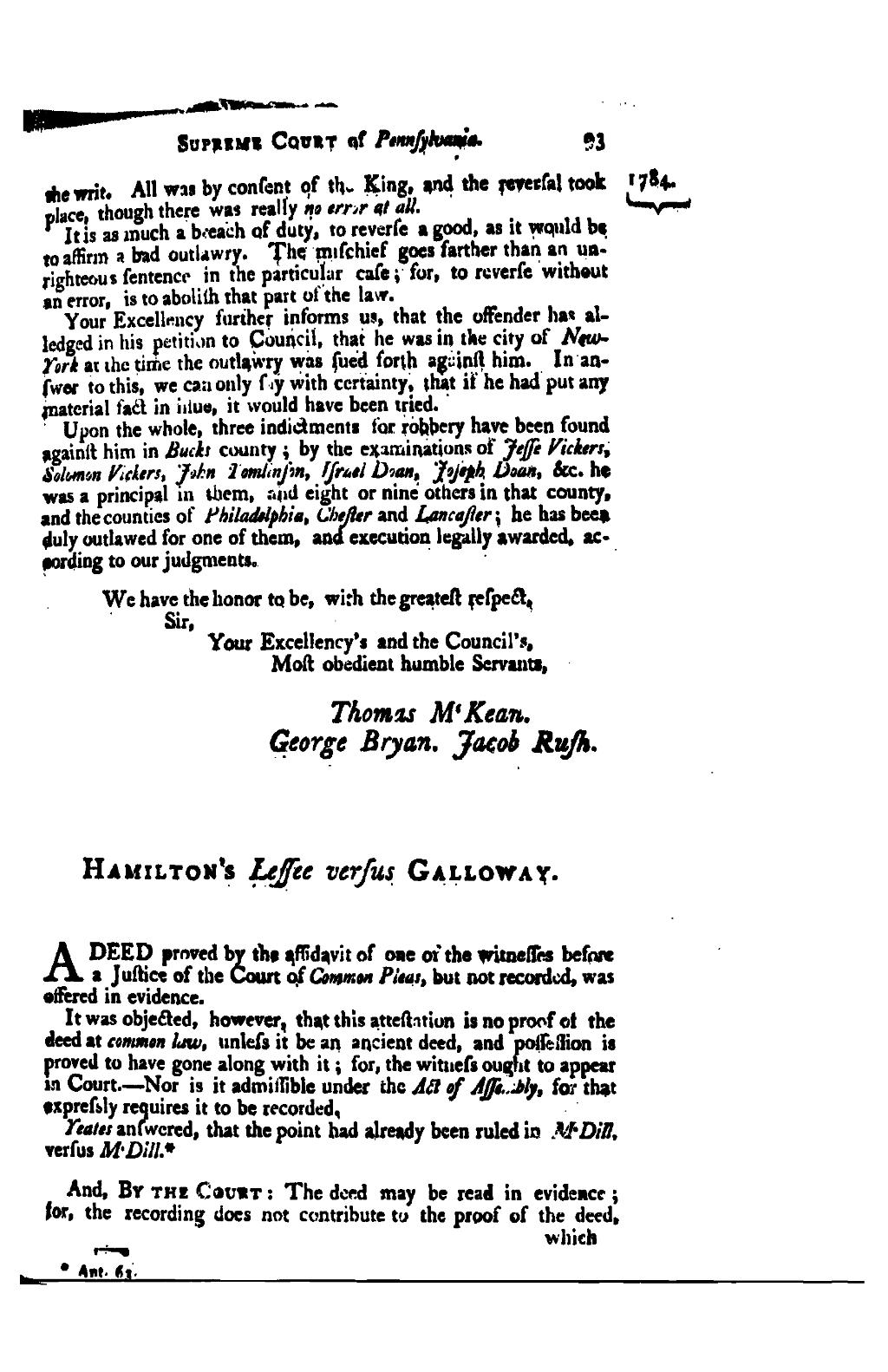1784.![]()
she writ. All was by consent of the King, and the reversal took place, through there was really no error at all.
It is as much a breach of duty, to reverse a good, as it would be to affirm a bad outlawry. The mischief goes farther than an unrighteous sentence in the particular case ; for, to reverse without an error, is to abolish that part of the law.
Your Excellency further informs us, that the offender has alledged in his petition to Council, that he was in the city of New-York at the time the outlawry was sued forth against him In answer to this, we can only say with certainty, that if he had put any material fact (illegible text), it would have been tried.
Upon the whole, tthree indictments for robbery have been found against him in Bucks county ; by the examinations of Jeʃʃe Vickers, Solomon Vickers, John Tomlinʃon, Iʃrael Doan, Joʃeph Doan, &c. he was a principle in them, and eight or nine others in that county, and the counties of Philadelphia, Cheʃter and Lancaʃter ; he has been duly outlawed for one of them, and execution legally awarded, according to our judgments.
- We have the honor to be, with the greateʃt reʃpect,
- Sir,
- Your Excellency's and the Council's,
- Most obedient humble Servants,
- Your Excellency's and the Council's,
- Sir,
- We have the honor to be, with the greateʃt reʃpect,
- THOMAS M‘KEAN.
- George Bryan. Jacob Ruʃh
HAMILTON'S Leʃʃee verʃus GALLOWAY.
A
DEED proved by the affidavit of one of the witnesses before a Justice of the Court of Common Pleas, but not recorded, was offered in evidence.
It was objected, however, that this atteftation is no proof of the deed at common law, unless it be an ancient deed, and possession is proved to have gone along with it ; for, the witness ought to appear in Court.—Nor is it admissible under the Act oƒ Assembly, for that expressly requires it to be recorded.
Yeates answered, that the point had already been ruled in M‘Dill, verſus M‘Dill.[♦]
And,by the court : The deed may be read in evidence ; for, the recording does not contribute to the proof of the deed,
which
♦ Ant. 63

